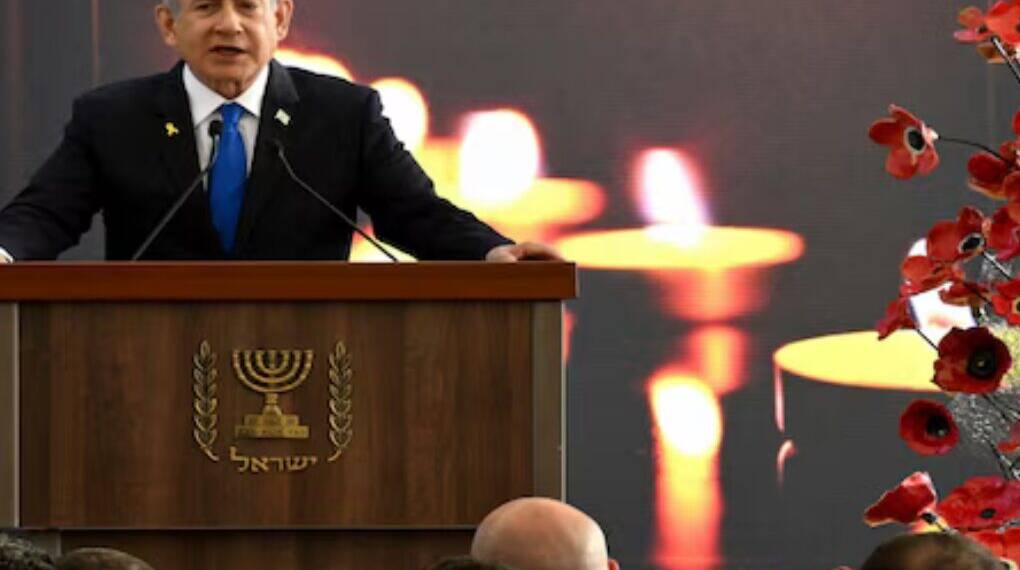In a striking display of diplomatic discord, Israeli Prime Minister Benjamin Netanyahu sharply rebuked the leaders of the United Kingdom, France, and Canada, accusing them of empowering Hamas through their criticism of Israel’s military actions in Gaza. The exchange followed the tragic killing of two Israeli embassy staff members in Washington, D.C., a crime that Israeli authorities described as an act of antisemitic violence.
The incident, which claimed the lives of Yaron Lischinsky and Sarah Lynn Milgrim, took place outside the Capital Jewish Museum. The assailant, identified as Elias Rodriguez, reportedly shouted pro-Palestinian slogans during his arrest. The attack has fueled already intense debates surrounding the ongoing conflict in Gaza and international responses to it.
In a joint statement issued earlier this week, Prime Minister Keir Starmer of the UK, President Emmanuel Macron of France, and Canadian Prime Minister Mark Carney urged Israel to allow greater humanitarian aid into Gaza and reconsider its current military approach. This appeal was seen as one of the most forceful critiques from close allies since the war began nearly 19 months ago, following Hamas’s deadly incursion into Israeli territory on October 7, 2023.
Netanyahu responded by accusing the three leaders of siding with Hamas. In a video message, he claimed that Hamas welcomed the trio’s condemnation of Israel’s war strategy, interpreting it as international support for their cause. “When mass murderers, rapists, baby killers, and kidnappers thank you, you are on the wrong side of justice, humanity, and history,” Netanyahu declared.
The prime minister emphasized that Israel’s military campaign was a necessary defense against an existential threat posed by Hamas, whom he accused of seeking to annihilate the Jewish people. He also criticized the call for a ceasefire, suggesting it would leave Hamas’s military structure intact.
UK PM Keir Starmer, whose Labour Party has been vocal about humanitarian concerns in Gaza, described the humanitarian situation there as “intolerable.” The UK has taken steps to express its disapproval, including suspending trade talks with Israel and summoning the Israeli ambassador for formal discussions. Foreign Secretary David Lammy warned that the conflict had entered a “dark new phase,” calling Israel’s blockade of aid “indefensible and cruel.”
Also read: Two Israeli Embassy Staff Shot Dead Outside Jewish Museum in Washington, DC
French and Canadian leaders echoed these concerns. French Foreign Ministry spokesperson Christophe Lemoine reiterated the need for “massive and unimpeded” aid access to Gaza. Canada’s government also maintained that Israel must comply with international humanitarian obligations, even as it defends itself.
UK Armed Forces Minister Luke Pollard responded to Netanyahu’s comments in a radio interview, reaffirming Britain’s support for Israel’s right to self-defense but stressing the importance of adhering to humanitarian law. “The way to peace is through a restored ceasefire, the release of hostages, and sufficient aid reaching civilians in Gaza,” Pollard said.
Meanwhile, humanitarian conditions in Gaza remain dire. After an 11-week blockade, only limited aid has entered the region. While over 90 aid trucks were allowed entry recently, the United Nations stated this was still vastly insufficient. The ongoing blockade has raised fears of widespread famine among Gaza’s civilian population.
Former Israeli Prime Minister Ehud Olmert also entered the fray, publicly denouncing the current Israeli leadership. In a BBC interview, he described Netanyahu and his cabinet as “a gang of thugs,” expressing concern over what he labeled as increasingly reckless policies.
With international tensions rising and calls for accountability mounting, the debate surrounding Israel’s military actions and humanitarian responsibilities continues to deepen. As diplomatic relations strain under the weight of diverging perspectives, the path to peace in the region appears as complex as ever.








